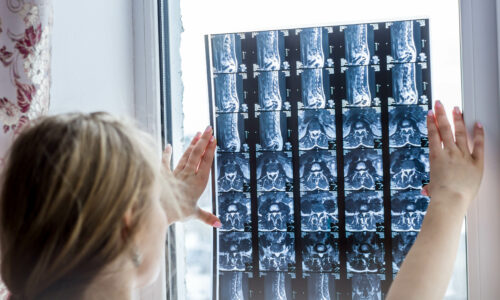Call and get expert legal advice from our specialist medical negligence team. Find out if you can claim compensation.
CALL 0800 083 5500
If you or a family member has suffered as a result of an undiagnosed or misdiagnosed heart attack, specialist legal advice can help you secure medical negligence compensation to provide financial security for your family.

Any action or failure on the part of a medical professional responsible for your care that results in a heart attack going undiagnosed, or a diagnosis being delayed could mean you are entitled to make a medical negligence compensation claim. In the experience of the expert solicitors at Blackwater Law, some of the most common situations where it is appropriate to make a heart attack misdiagnosis claim include the following:
The situations listed above do not represent a comprehensive list of scenarios where it may be appropriate to make a compensation claim for an undiagnosed heart attack. If you are unhappy with the care you or a family member received following a heart attack, it is important for you to speak to a specialist medical negligence solicitor who can provide free initial advice and support as to whether making a compensation claim is the right option for you and your family.
The UK sees 188,000 hospital admissions per year as a result of heart attacks, equating to one roughly every 3 minutes. Many survive, but misdiagnosis of or undiagnosed heart attacks still lead to thousands of deaths every year, and a great deal of suffering besides. In these unfortunate cases, making a claim for heart attack misdiagnosis can provide financial security to the family of the patient, but can also ensure the NHS admits its mistakes and makes changes to prevent them from occurring in future and impacting even more lives.
Contact a Blackwater Law clinical negligence solicitor today and you will speak to our specialist medical negligence team who will give you free initial advice, answer your questions and quickly tell you whether you may be entitled to make a compensation claim relating to an undiagnosed heart attack.
Ranked by the Legal 500 – an independent directory of the UK’s top law firms – as one of the leading clinical negligence teams in the country, you can be sure you will get some of the best legal advice available.
Blackwater Law is a specialist in dealing with medical negligence claims and is experienced in representing clients specifically in claims relating to delayed diagnosis of heart attack and misdiagnosis of a heart attack. Such is the team’s reputation in the field of clinical negligence claims that members of the public from across the country seek their advice and support.
At Blackwater Law, we understand just how devastating an undiagnosed heart attack can be, from its effects on the personal health of the patient, to their ability to go to work and earn a living. There is also the often significant impact on the wider family.
Your heart attack claim will be undertaken on a no win, no fee basis meaning there is no financial risk to you.
We know that at a time like this, finding the funds to make a compensation claim and put things right will likely be the last thing on your mind – so we don’t ask you to. All of our clinical negligence cases – including those relating to undiagnosed and misdiagnosed heart attacks – are conducted on an entirely no-win, no-fee basis.
Making a no-win, no-fee compensation claim means you will not pay Blackwater Law any money until such time as your case is settled successfully in your favour. Our legal fee is simply a percentage of the amount of compensation that you receive, which will be agreed with you from the very beginning. This agreement guarantees you a fair deal, with no personal risk involved whatsoever.
Blackwater Law medical negligence solicitors acted for Mr L in a medical negligence claim in the High Court after he was misdiagnosed. The misdiagnosis meant he went on to suffer a serious stroke-causing life-limiting disability.

Medical staff are well trained in recognising the symptoms of a heart attack, and as such misdiagnosis should not occur often. There are however a number of signs you should look out for to heighten your awareness and help you recognise when it is time to seek medical attention.
Avoid the misconception that the severity of any chest pain is indicative of whether or not you are suffering a heart attack. The pain associated with a heart attack can range from mild to extreme, and in some cases can even be mistaken for indigestion, with diabetics more likely to not experience any such pain at all.
If you are suspected to have sustained a heart attack you should be admitted to the hospital immediately for a confirmation diagnosis and subsequent treatment. Normally you will be rushed to an Acute Cardiac Care Unit (ACCU), or directly to the hospital’s cardiac catheterisation unit.
Within 10 minutes of admittance, an electrocardiogram (ECG) should be performed in order to measure the electrical activity of your heart. This process is totally painless and requires less than 5 minutes, with electrodes attached to your legs, arms and your chest.
Your ECG will help confirm exactly which kind of heart attack you have sustained, and as such acts to reduce the likelihood of a heart attack misdiagnosis.
Only a specialist medical negligence solicitor can advise you on whether you are able to make a claim for compensation.
Heart attacks are referred to by medical professionals as forms of the acute coronary syndrome (ACS), of which there are three primary types.
ST-Segment Elevation Myocardial Infarction (STEMI): This is the most serious form of heart attack, and denotes a situation where there is a prolonged interruption of the blood supply to the heart. This is caused by a blockage of the coronary artery by cholesterol breaking down and subsequently being replaced by blood clots. This will eventually lead to significant damage to the large area of the heart. It is the most commonly recognised form of a heart attack.
Non-ST Segment Elevation Myocardial Infarction (NSTEMI): Considered less immediately dangerous than the aforementioned STEMI heart attacks, these denote situations where the supply of blood to the heart is only partially cut off, resulting in a smaller area of the heart sustaining damage. Left untreated, however, these attacks are still life-threatening and may progress to a more serious STEMI stage heart attack.
Unstable Angina: Regarded as the least serious form of ACS, this is still a medical emergency as without proper treatment the condition can deteriorate and cause serious damage to the heart, or become a STEMI attack.
Correct diagnosis of the type of heart attack suffered ensures the correct medical advice and treatment are provided.
There is no singular cause for heart attacks in UK patients; however, a number of factors can elevate your risk of sustaining one:
Treatment for heart attacks is far more successful following prompt diagnosis, a delayed or misdiagnosis can drastically increase mortality risk and complicate treatment
The course of treatment best suited to your or your family member will depend largely on what form of heart attack has been sustained.
In the event you sustain a STEMI heart attack:
Where you suffer an NSTEMI or Unstable Angina:
It was a long slow process but Jason kept us informed all the way.
I must thank you on your great efforts and excellent legal work you carried out on my behalf.